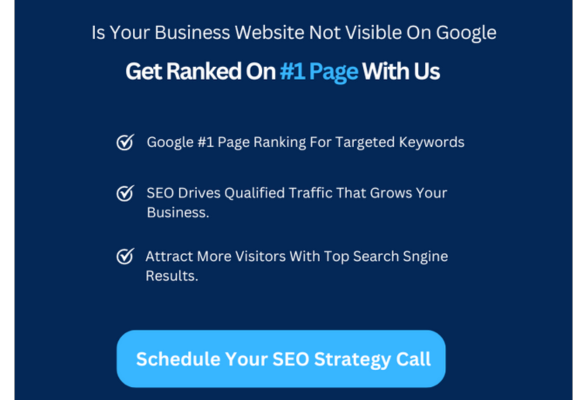KEY TAKEAWAYS
- Targeted Reach & Growth: Master SEO and social media marketing to reach the right audience and compete with bigger brands. Track and optimize campaigns for the best return on investment.
- Build Customer Relationships: Craft engaging stories and content to connect with your audience. Use email marketing to nurture leads, build trust, and drive sales.
- Data-Driven Decisions: Analyze customer data to understand their needs and buying behavior. Deliver the right content on the right platforms at the right time for better conversions.
- Content is King: Create valuable content (blogs, articles) that educates customers and positions you as an expert. Integrate relevant keywords for SEO benefits.
The growth of e-commerce has created a golden age for Shopify businesses. But with great opportunity comes great competition. Mastering digital marketing strategies is the key to unlocking your Shopify store’s full potential in 2024.”
We’ll dive deep into essential strategies for finding your ideal customers, creating content that grabs attention, harnessing the power of social media, and building a data-driven approach that gets you the biggest bang for your buck (maximizes ROI).
What is Shopify Digital Marketing? A Foundation for E-commerce Success in 2024
2024 is here, and for e-commerce businesses, understanding the power of Shopify digital marketing is key to success. In today’s digital world, a strong digital marketing plan is the foundation for any thriving Shopify store.
But what exactly is Shopify digital marketing?
It’s not just one strategy but a combination of tactics that work together to achieve specific goals. These strategies highlight your brand’s uniqueness and connect you with your target audience.
You can create a personalized marketing approach that is perfect for your Shopify store by analyzing data to understand your customers and improve sales.
This layered marketing approach encompasses everything from search engine optimization (SEO) to social media marketing, and each piece plays a vital role in attracting customers and driving sales.
Don’t wait! Build your dream Shopify store and get your first month free with this exclusive offer ►► https://www.shopify.com/free-trial
Tailoring Your Shopify Marketing Strategy
Before diving into specific tactics, it’s crucial to understand who your ideal customer is. In the world of e-commerce, there are two main customer types:
- Business-to-Business (B2B): In this model, you sell your products or services to other businesses. B2B sales cycles tend to be longer and involve more complex decision-making processes involving multiple stakeholders. Building trust and establishing your expertise in the industry become essential.
- Business-to-Consumer (B2C): Here, you sell directly to individual consumers. B2C marketing focuses on reaching a wider audience and driving immediate sales. Eye-catching visuals and social media engagement play a more significant role.
Understanding whether you’re targeting B2B or B2C customers will significantly impact your marketing strategy. The content you create, the channels you utilize, and your messaging will differ depending on your target audience.
The heart of any good digital strategy remains strong content and smart use of data analysis tools. This powerful combination drives traffic to your store and turns visitors into paying customers. A well-rounded digital presence with depth is more important than ever for businesses looking to make a bigger splash online.
Why is Shopify Digital Marketing Important in 2024?
Today’s crowded e-commerce landscape requires more than just having a website. To stand out, you need a multifaceted digital marketing approach. Shopify digital marketing goes beyond just getting your products seen—it offers a range of benefits to help you refine your strategy and achieve long-term success.
Targeted Marketing Efforts:
Gone are the days of throwing marketing tactics at the wall and hoping something sticks. A data-driven Shopify digital marketing strategy allows you to understand your target audience truly. Analyzing customer data gives you valuable insights into customer needs, preferences, and online behavior. You are empowered to deliver the right content on the right platforms at the right time. This laser-focused approach maximizes engagement and conversions, ensuring your marketing efforts resonate with the customers who matter most.
Competing on a Level Playing Field:
Even with limited resources, you can compete with larger players in the e-commerce market. When implemented effectively, organic strategies like SEO and social media marketing can level the playing field. By optimizing your website for search engines and actively engaging with your audience on social media platforms, you can reach your target audience and establish your brand alongside industry giants.
Optimizing Your Marketing Investment:
Marketing shouldn’t be a guessing game. Shopify digital marketing empowers you to track and analyze the results of your campaigns in real time. This valuable data lets you identify what tactics are working well and which might need adjustment. By analyzing key metrics, you can optimize your efforts, minimize customer acquisition costs, and ensure your marketing budget delivers the highest return on investment (ROI).
Measurable Progress with Data-Driven Decisions:
A well-defined Shopify digital marketing strategy goes beyond simply launching campaigns. It provides key insights into campaign performance through data analysis. Setting clear goals and tracking Key Performance Indicators (KPIs) allows you to measure the effectiveness of your efforts in a quantifiable way. This data-driven approach ensures you’re making informed decisions based on real results, maximizing the positive impact of your marketing efforts.
Boosting Conversion Rates Through Customer Education:
The ultimate goal of any marketing strategy is to convert visitors into paying customers. Shopify digital marketing goes beyond simply attracting customers—it educates them about your brand and guides them toward purchasing. You can nurture leads, address customer concerns, build trust, and drive sales by implementing effective tactics like content marketing and targeted ads.
By leveraging the power of Shopify digital marketing, you can confidently navigate the competitive e-commerce landscape. This comprehensive approach will equip you with the tools and insights needed to achieve sustainable growth for your business.
Mastering Search Engine Optimization for Your Shopify Store
In 2024, a key ingredient to a thriving Shopify store is mastering search engine optimization (SEO). It’s a foundational element of any strong Shopify digital marketing strategy. When search engines like Google crawl your e-commerce site, they consider factors like a clear sitemap, relevant keywords, and a user-friendly URL structure to determine your ranking.
The Branding Agency can help! We ensure that every page on your Shopify store is optimized to meet these search engines’ complex algorithms. We analyze and adjust your site’s content and tags using advanced SEO tools to resonate with search engine crawlers and your target audience. Every detail matters in SEO, from speeding up your website’s loading times to making it more engaging for visitors.
The result? A more visible Shopify store that attracts organic traffic – the lifeblood of boosting your sales in 2024. In today’s competitive online marketplace, a well-optimized Shopify store isn’t a luxury; it’s a must-have.
Uncover your competitor’s secret sauce and take your Shopify marketing to the next level: Analyze their strategies with a FREE SEMrush trial ►► https://www.semrush.com/lp/product-competitive-research/en/
Exploring Shopify’s SEO Tools and Practices for Search Engine Excellence
Shopify’s SEO tools can be a helpful starting point for optimizing your Shopify store’s search engine ranking. These tools provide a solid foundation for building a strong SEO strategy. If you want to take your SEO to the next level, I’ll share some of my top SEO tools at the end of this section.
Shopify designed its SEO tools to be user-friendly and cater to beginners and experienced SEO professionals. These tools are the foundation of any successful SEO strategy, from managing metadata to optimizing site speed. They act as a compass, guiding you through the ever-changing search engine algorithms and user behavior landscape.
SEO goes beyond just stuffing keywords into your content. It’s about creating a great user experience that search engines reward with higher visibility. Using the right approach, Shopify merchants can leverage these tools to build a customized SEO strategy that appeals to search engines and potential customers.
Ultimately, when it comes to mastering Shopify marketing and sales in 2024, combining Shopify’s SEO tools and best-in-class SEO practices becomes the key to unlocking digital success.
Go beyond Shopify’s built-in tools! Optimize your content and keywords wuth an AI-powered SEO edge with a FREE 7-day trial of Surfer SEO. My top recommendation ►► https://get.surferseo.com/DMShopify
The Role of Content Marketing in Shopify’s Digital Marketing Strategy
Content marketing is a powerful tool to transform your Shopify store into a thriving online hub, attracting and engaging potential customers. It is the foundation for various aspects of your marketing strategy, from SEO to social media.
By creating valuable content that resonates with your audience, you’re doing more than just selling products – you’re building relationships and establishing yourself as an expert in your niche.
Effective content marketing goes beyond occasional blog posts. It’s about consistently creating informative content that provides value to existing and potential customers. This steady stream of high-quality content strengthens your overall digital marketing efforts on Shopify by driving organic traffic through better visibility and increased customer engagement.
Smart keyword integration is key. To ensure that your digital marketing strategy benefits and that your online business succeeds, it is crucial to weave relevant keywords into your blog posts, how-to guides, and expert articles. As you integrate content marketing into your Shopify approach, you’ll see a noticeable difference in how it amplifies your brand’s voice, reaches a wider audience, and ultimately boosts sales.
Digital Storytelling: Content Marketing That Resonates with Shopify Audiences
Crafting captivating narratives around your products is a powerful weapon for Shopify stores. It’s not just about selling; it’s about sharing your brand story, the values behind your products, and the experiences that make them special. This emotional connection builds trust and loyalty, transforming fleeting visitors into brand advocates.
Forget dry product descriptions! Your Shopify content – blog posts, articles, and social media – should be a tapestry woven with stories that showcase the human element.
The Key: Content that resonates with your audience. Stories that evoke emotions and make them want to be part of something bigger can turn passive viewers into active participants eager to engage with your brand.
The Goal: Create a captivating narrative that will draw customers back to your Shopify store time and time again.
The Recipe for Success: Skillfully weave your products into relatable, memorable stories. This will expand your reach, cultivate a loyal customer base, and drive sales.
Supercharge Your Shopify Blog: Engaging Content, Reviews, and SEO with Product & Customer Review Management Software
Your Shopify blog plays a central role in attracting and retaining customers. But how do you ensure your content is captivating enough to turn visitors into loyal fans? Engaging content and product & customer review management software are the secret weapons in your arsenal.
Craft High-Quality Content that Integrates Reviews:
You establish yourself as a thought leader by creating valuable content that addresses your audience’s needs and interests. But don’t stop there! Leverage product & customer review management software like Stamped.io to seamlessly integrate authentic customer reviews into your blog posts.
Why are Reviews Powerful?
Customer reviews are powerful social proof that builds trust and credibility with potential buyers. Tools like Stamped.io allow you to collect high-quality reviews from satisfied customers and showcase them strategically throughout your blog content. This transparency fosters a sense of authenticity and encourages visitors to convert into paying customers.
Boost SEO with Review-Rich Content:
Product & customer review management software goes beyond simply collecting reviews. Platforms like Stamped.io can help optimize your content for search engines by generating rich snippets with product review stars and ratings displayed directly in search results. Implementing this strategy can significantly improve your click-through rates and drive more qualified traffic to your Shopify store.
Product & Customer Review Management Software: A Game Changer
Software like Stamped.io https://get.stamped.io/DMShopify can streamline collecting, managing, and showcasing valuable product reviews on your Shopify store. Here’s how it can supercharge your blog’s impact:
- Encourages Customer Engagement: Streamlined review collection processes through tools like email requests and post-purchase popups can significantly increase the number of reviews you receive. Building social proof and obtaining valuable customer insights can be integrated into your content strategy.
- Boosts SEO: Search engines love fresh, relevant content; product reviews are a perfect example. You can enhance your content’s SEO value and improve search engine rankings by strategically integrating reviews into your blog posts (e.g., highlighting positive reviews of a product featured in a blog post).
- Builds Trust and Credibility: Positive customer reviews act as social proof, reassuring potential customers about the quality and value of your products, ultimately leading to increased sales conversions. You build trust and credibility by showcasing authentic reviews on your blog, ultimately driving sales conversions.
Turn customer reviews into conversions! With Stamped.io’s review management software, Try it FREE and watch your conversions soar ►► https://get.stamped.io/DMShopify
Shopify Store Optimization: Leveraging Search Engine Marketing (SEM) including PPC & Google Ads
To supercharge your sales, leverage PPC advertising like Google Ads within your overall SEM strategy. Here’s where Search Engine Marketing (SEM) comes in, with PPC (pay-per-click) advertising as a powerful tool.
Imagine your ideal customer searching for exactly what you offer. PPC advertising, like Google Ads, allows you to place targeted ads at the top of search engine results pages (SERPs) when searching happens. Placing your store in front of high-intent buyers actively looking to spend money can drive significant waves of qualified traffic directly to your doorstep.
Of course, organic search optimization (SEO) is still crucial for long-term success. However, with the precision of PPC platforms like Google Ads, SEM gives you the power to take control and get immediate results. By strategically combining targeted PPC campaigns with SEO best practices, you can maximize your store’s visibility across Google’s search engine, ensuring it appears exactly when and where it matters most.
This well-rounded approach creates a robust digital marketing campaign that speaks directly to your audience’s needs and propels your Shopify store to the forefront of the 2024 e-commerce marketplace.
Simplify your dropshipping journey and discover top US/EU suppliers with Spocket. Get started today ►► https://spocket.partnerlinks.io/DMShopify
Shopify and the Power of Social Media Marketing
In today’s digital commerce landscape, social media marketing reigns supreme. It’s a driving force that propels Shopify stores to new heights of customer engagement and sales. For modern retailers, the dynamic duo of Shopify and social media marketing strategies is key to captivating existing customers and expanding their reach.
Marketers leverage the power of social media platforms to craft engaging stories around their products. They highlight features that resonate with the target audience and inspire them to become brand advocates. A smart marketing strategy taps into the social aspect of these platforms, fostering a digital space where customers feel like valued members of a community.
For Shopify users, social media isn’t just a megaphone for promotions; it’s a collaborative space where community and commerce intertwine. Creating a vibrant hub of customer interaction fosters brand loyalty. The success of a Shopify marketing strategy often hinges on this symbiotic relationship with social media. When executed well, it can propel a brand into the spotlight and keep its products at the top of customers’ minds.
Integrating products into social media conversations can elevate a Shopify store from a simple online presence to a thriving digital marketplace.
The Power of Email: Building Relationships and Driving Sales with Email Marketing for Shopify
Email marketing for Shopify is a powerful tool that seamlessly integrates into any strong digital marketing strategy. It goes beyond just sending emails – it’s about fostering relationships with customers that turn them from one-time buyers into loyal fans.
The Branding Agency helps you craft targeted email campaigns that resonate with your subscribers’ interests and needs, keeping them engaged with your brand. Automated email sequences can be a game-changer, leading to significant customer retention and repeat sales growth. Every email you send is a chance to offer value and strengthen your brand identity – crucial for driving sales on your Shopify store.
A well-rounded marketing strategy includes a variety of emails, from informative newsletters and promotional announcements to helpful cart abandonment reminders. These emails keep your customers up-to-date and engaged. With The Branding Agency’s expertise, your Shopify store can unlock the full potential of email marketing, transforming emails into powerful tools that communicate your message, nurture customer relationships, and boost sales in 2024 and beyond.
Unlocking Growth: The Power of Affiliate Marketing for Shopify Stores
The world of digital marketing for Shopify stores is full of possibilities, and affiliate marketing has become a must-have strategy for growth. This performance-based approach taps into the power of influential people (affiliates) who promote your products using unique links and create new customers and online sales for your store.
Shopify’s platform smoothly integrates with affiliate marketing systems, making it easy to create a powerful combination that boosts marketing and sales efforts.
Within this strategy, well-placed links can make a huge difference. Every click and conversion shows the strength of this approach, making it a key tool for Shopify stores looking to expand their online reach. Affiliate marketing also allows you to reach new markets that other marketing channels might miss.
The Branding Agency can help you develop an affiliate marketing strategy that perfectly fits your online goals. It’s more than just about making sales; it’s a complete growth plan that connects with every aspect of your Shopify business—from sparking initial customer interest to turning them into repeat buyers. In short, affiliate marketing isn’t just an option—it’s a crucial part of any well-rounded Shopify marketing strategy.
Developing a Powerful Shopify Marketing Funnel
Building a strong Shopify marketing funnel is key to turning visitors into fans and growing sales. A well-designed funnel personalizes the customer journey through your marketing efforts, guiding them toward a purchase with each interaction.
At The Branding Agency, we understand Shopify businesses’ unique needs and behaviors. We use this knowledge to craft marketing strategies that resonate with your target audience.
By understanding your ideal customer, we create a series of touchpoints that take them from initial awareness to becoming a paying customer. We leverage every tool in your Shopify marketing toolbox to make this happen.
Using a variety of digital marketing techniques strengthens the entire funnel. We focus on conversions and customer experience, designing strategies beyond just selling a product. We want to create a memorable brand experience that transforms casual browsers into loyal customers. Each funnel stage is optimized to keep people engaged and returning for more.
A well-structured Shopify marketing funnel can significantly boost your profits and give you a lasting edge in the competitive online world.





